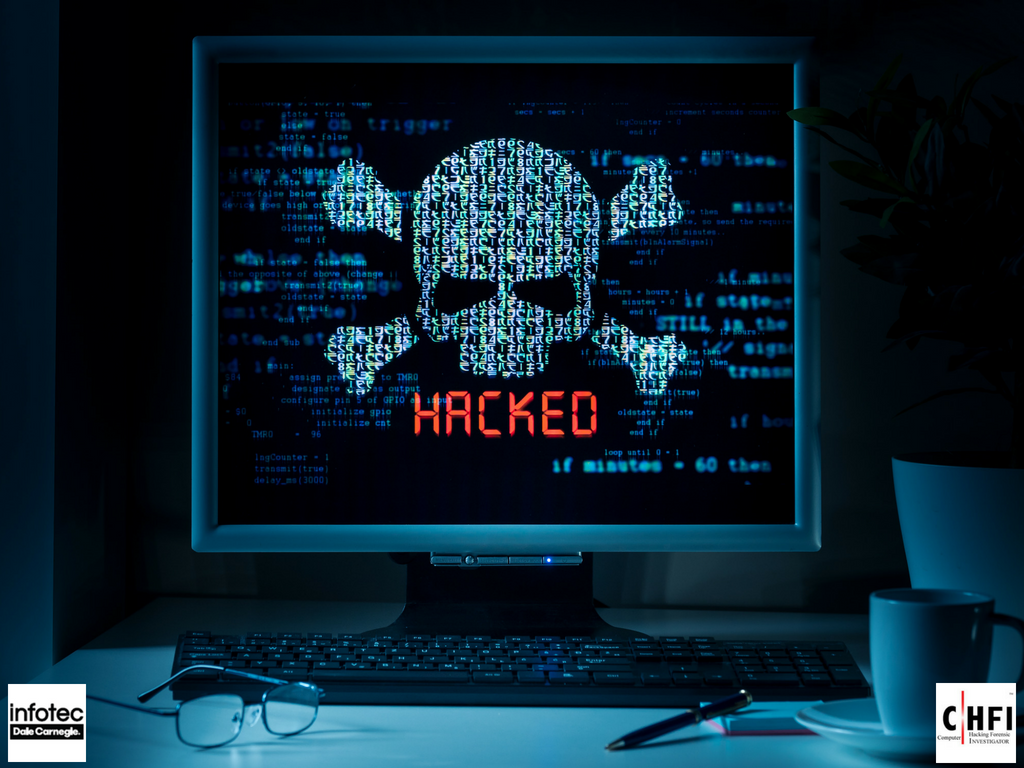CHFI Certification Requirements: How Can Your Employees Earn this Certification?
Cyber-attacks are one of the greatest threats to be businesses that have the potential to bring down a company’s reputation in no time. Hackers are constantly finding new ways to attack information systems and exploit their vulnerabilities. With growing sophistication in technology, it is becoming very difficult to track down and quarantine cyber threats. This is why Computer Hacking Forensic Investigator Certification exists.
How Bad is the Problem?
Organizations are giving rise to an army that’s entrusted with the task of protecting their data systems. These experts are skilled in beating hackers at their own game. They employ the skills and techniques hackers use to identify vulnerabilities of a system and prevent unwanted access to information and network systems.
If the network or connected hardware has been breached, it won’t make sense to shut things down and hope for the best, steps should be taken to analyze what transpired and implement changes. Devising an actionable plan also involves training some of your employees for Computer Hacking Forensic Investigation (CHFI) Certification. This could impart your business with the knowledge needed to tackle cyber-attacks, data loss, and digital IP theft.
What is CHFI and how can it Help?
CHFI involves identifying cyber-attacks, assessing the issue to prevent future attacks and gathering evidence used in reporting the crime. An expert in CHFI is responsible for obtaining information from flash drives, computers, remote servers, and other forms of data storage devices. An investigator works with the affected business and law enforcement agencies.
Their goal is hunting down criminal evidence hidden in the virtual world and tracing it back to the owner in the real world. All areas of cybercrime, from infringement or destruction of intellectual property, financial fraud, corporate theft, and destruction of evidence come under the surveillance of a Computer Hacking Forensic Investigator.
CHFI experts can draw on a range of techniques for discovering data that resides in a computer system, or recovering damaged, encrypted, or deleted file information. This is referred to as computer data recovery.
What is Taught in CHFI Certification Courses?
In CHFI training courses, students learn about penetration testing procedures and tools, and about the methods used in conducting investigations using the latest digital forensics technologies. More tools are developed for conducting computer investigations be it digital forensics, computer data recovery, or computer crime. Since the investigators will be required to press criminal charges if the intruder is known, they at times will have to personally testify in court to confirm the legitimacy of the evidence provided.
With CHFI Certification, employees are equipped with knowledge and skills needed to detect an intruder’s presence, hunt them down back to their computer, and collect evidence to charge them with the crime. What’s great is that they do it in a forensically sound manner to ensure that the investigation and its findings are legally accepted. The CHFI curriculum is neutral and this means that employees from a wide range of businesses, regardless of the particular technologies in question.
Benefits of CHFI Experts to an Organization
- Prevention
CHFI certificate holders help their employers identify and develop high-risk operating standards. Since the credential is designed around vendor neutrality, trained employees must be able to show their understanding of common and latest digital forensics technologies as well as methods and security management practices.
- Preparation and Protection
Training your employees or hiring individuals with CHFI knowledge and skills is vital when it comes to developing defenses before business events such as product version updates and big service launches. Hacking forensic has become an incredibly critical practice that allows a business to reduce the implications of breaches.
- Legal admissibility
In the event of an attack or data breach, trained CHFI experts ensure that the business satisfies the legal requirements of gathering evidence and safeguarding the digital crime scene. An investigator also analyzes the computer system usage history to develop counterintelligence actions such as deciphering network logs, analyzing image files and uncovering deleted documents.
CHFI training equips students with knowledge on latest forms of malware and web attacks, code cracking and password encryption skills. They are also taught processes related to cybercrime investigations, duties of an individual who visits the scene of the crime, assessing crime scene photos, and recovering data that has been wiped off the hard drive for various computer platforms. Their education is rounded out with time clock synchronization and log analysis tools, familiarity with legal proceedings and providing testimony in court. The course provides a strong foundation knowledge of key practices and concepts
Regardless of the size of your team or data that you deal with, digital forensics must be a part of your daily practice. CHFI courses go into exhausting detail and provide your employees a firm understanding of the domains of digital forensics. Protect your organization by enrolling your IT specialist in Infotec’s Computer Hacking Forensic Investigator (CHFI) Certification courses. This course is designed to build new knowledge and maximize your employees understanding of digital forensics. Contact us today to learn more.
For more information about Infotec or any of our programs click here: http://www.infotectraining.com/ or https://ops.infotecpro.com/course_schedule/course_schedule.cfm.




